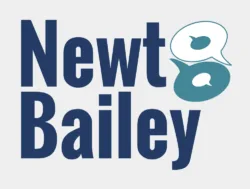Principles
A few key principles of my approach
to communication coaching and
training in the workplace.
“After only two sessions there is already a marked improvement in office communication. We are learning to listen to what a person is really saying and to say what we really mean. We are learning new tools with which to deal with conflict and stressful situations. These tools are tools of connection, efficiency and peaceful resolution. I know it is sometimes hard to see the ROI on these types of sessions in a business, but I cannot emphasize enough that Newt Bailey will bring your company or group great returns.”
John Vars, Founder, Dogster, Inc.
Communication Skills are Real
I’m frequently asked whether I believe people can really improve their communication skills, and whether it’s actually possible to resolve conflicts peacefully. The question always surprises me, as I see real change and resolution happening for so many people on a weekly basis.
We can absolutely become better communicators, and it’s a great idea for us to do so! It takes some effort and attention, just like improving our abilities in any other field, but the rewards are huge.
Improved communication skills are likely to transform not only your personal and professional relationships, but also your enjoyment of life. These skills help reduce stress, and make conflicts less frequent. They also let you spend less time on “clean-up” after unsuccessful interactions, and help curb that exhausting habit of playing out conversations again and again in your mind.
“The newest computer can merely compound, at speed, the oldest problem in the relations between human beings, and in the end the communicator will be confronted with the old problem, of what to say and how to say it.”
—Edward R. Murrow
You Know What Works
Think of all the conversations you’ve taken part in or observed. You’ve experienced fascinating conversations that led to new insights, efficient problem solving sessions, upsetting fights that led nowhere, and everything in between.
You’ve probably developed a keen sense for what works and what doesn’t. When speaking or listening to others, you have a sense of which communication choices are likely to build connection, trust, and ease of collaboration, and which are likely to have the opposite effect.
What is often missing is the ability to quickly access our innate expertise, even during moments of tension, uncertainty, and conflict. A huge part of gaining skill as a communicator is remembering to use the effective communication skills you already know, and having the emotional control and resilience to do so in the situations where those skills will be most useful. I can help you with this, in addition to sharing some other communication skills that might not be so familiar.
“You cannot teach a person anything; you can only help
him find it within himself.”—Galileo Gallilei
Marshall Rosenberg’s NVC
I am extremely grateful for the work of international peacemaker Marshall Rosenberg, Ph.D., Founder of the Center for Nonviolent Communication.
“Nonviolent Communication (NVC),” “Collaborative Communication,” “Productive Communication,” “Authentic Communication,” and “Compassionate Communication” are some of the names given to his model of human interaction. Which name you choose may depend on the context in which you are communicating—just as the words you use in your home may be different than those you use in your workplace. The underlying techniques and shifts in focus, however, remain the same in all contexts.
There is a common thread, accessible to all with a little coaching, that can aid you in finding solutions that last, conducting meetings that work, and building relationships that move forward with connection and trust.
My work draws extensively from the work of Marshall Rosenberg, combined with what I have learned from my own professional and personal life.
“What I want in my life is compassion, a flow between myself and others based on a mutual giving from the heart.”
—Marshall Rosenberg
